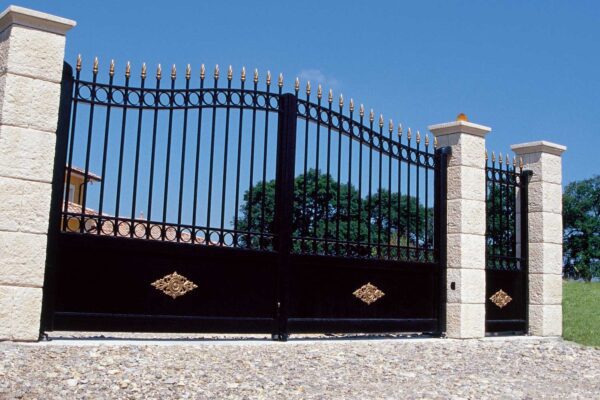Selecting which type of driveway gates can be a confusing process. In this Blogpost we will detail the features and benefits of each material and which one will be the best choice for you.
1.) Wooden Gates
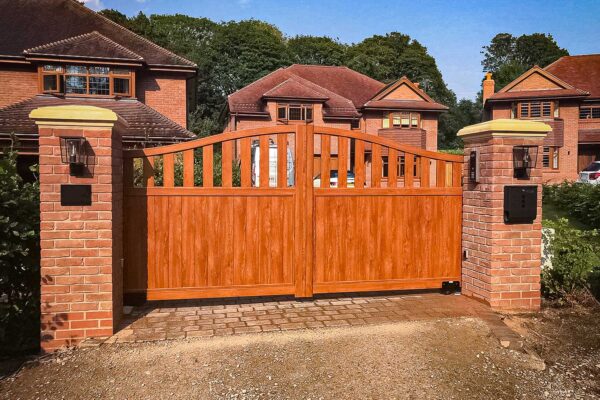
We recommend that wooden gates require lots of maintenance over time, especially in rainy areas. They do tend to look the most natural and can be a certain requirement for some councils and listed buildings. We would highly recommend stripping and varnishing them regularly to prevent rot and staining. You can get them in a range of tree types like Oak and Timber. They are usually built by a joinery company and can be automated and installed. Depending on the material and Joiner you use can be pretty cheap, to pretty expensive. Please see our recommendations for the best Joinery companies James B Joinery + GB Joinery
2.) Aluminium Gates
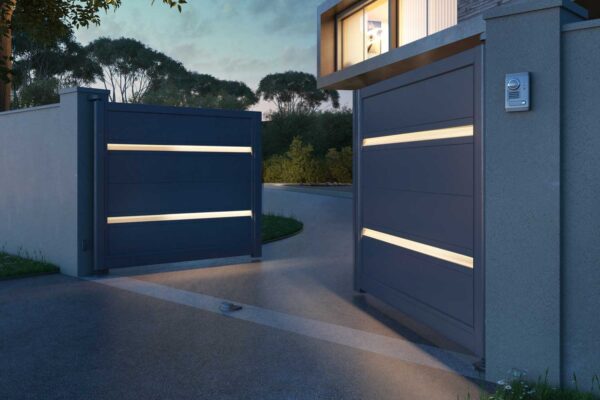
From ourselves at Horizal, Aluminium Driveway gates can be customised to your exact requirements in a range of colours and designs. They are virtually maintenance free and require nothing more than an occasional wash to wipe away grime and dirt. Aluminium are definitely the most stylish and durable option. They usually sit in the middle in terms of price range and due to the low-weight put less strain on automation equipment. Around hotter areas they are the industry standard due to their excellent resistance to extreme weather conditions. Please see our Aluminium gate collections here: Horizal – Aluminium Gate Collection
3.) Wrought Iron Gates
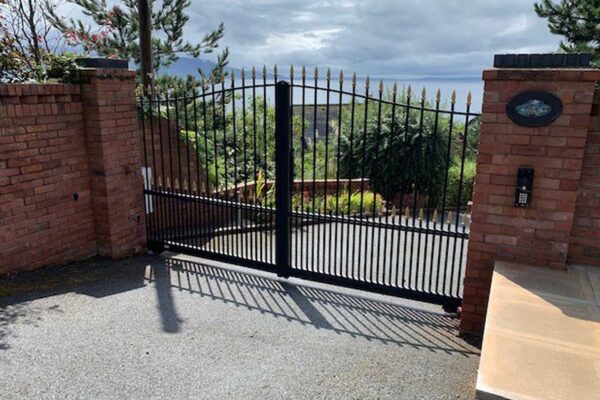
When deciding upon wrought iron, They offer a very traditional look to any property owner that is looking to go down the rustic and elegant route. Be warned, over time, wrought iron can corrode and rust. So it will need some love and affection after 3-4 years or so. Please see our recommendations for Wrought Iron Gate Supplies: Wrought Iron Gate supplies
4.) Composite Gates
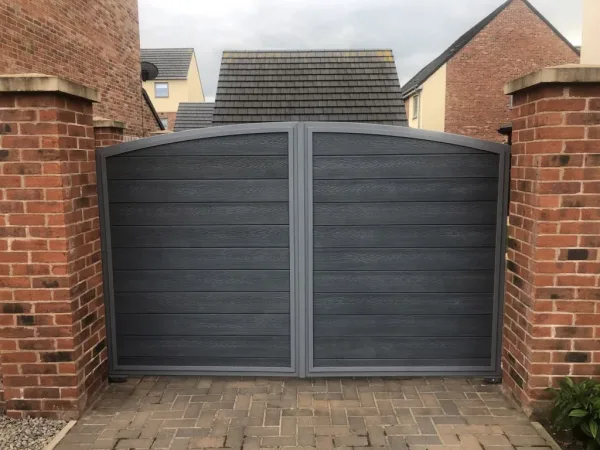
For those on a budget, these composite, plastic gates can offer a short term solution. But, due to changing climates can warp and bend after some heatwaves. The colour of the panels usually come in standard colours so make sure you match the RAL to any fixtures or fittings.

